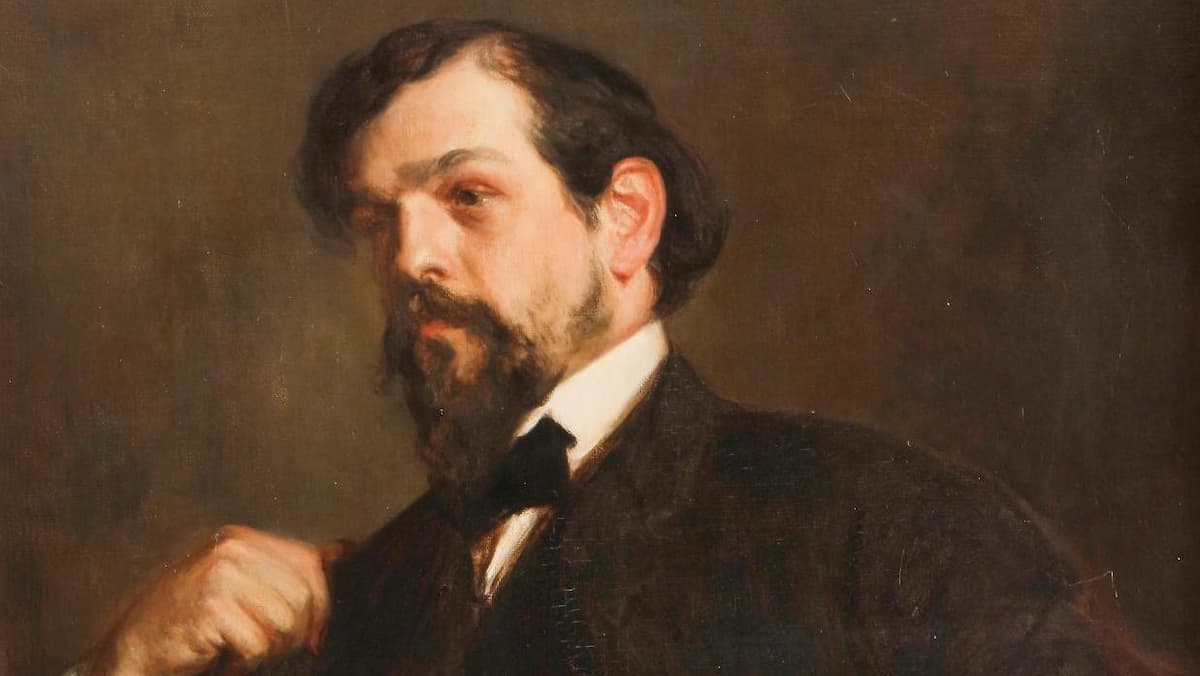Over the centuries, it has often been quite common for composers to endorse the role of music critics. Many composers, particularly in the past two centuries, have adopted this activity as one of their primaries. In fact, it is probably the second most frequent non-creative occupation after teaching; and for one very obvious reason, it provides the artist with a steady income — a case that is not guaranteed for most composers, particularly when they are in the early stage of their career.

Jacques-Émile Blanche (1861-1942), Claude Debussy, 1902, oil on canvas, 95 x 74 cm/37.4 x 29.1 in.
For anyone writing music, it does make sense to write about music on a first level. Who is in a better position to write and discuss something than the main protagonist? After all, Berlioz putting thoughts down on the symphonic form makes much more sense than someone who has never written a piece of music. The intentions might be different from composer to composer, but in opposition to someone not being familiar with creating music, a composer is not better placed — and after all, one can possibly have better intentions to comment on a work when one knows the journey it takes to reach its completion.
Berlioz : Symphonie Fantastique (Fantastical Symphony)
On a second level, and perhaps in many cases what must have been the first level, many composers take on the challenge of music criticism as a necessity rather than a natural inclination. If it is difficult to get music out on the world it is much easier to comment about the existing one. Therefore, while the composer works on his own creative output, he scrutinises others’.

Before being a composer, Dukas was first and foremost a major music critic. Debussy, who wrote under the moniker of Monsieur Croche, and Satie, who wrote extensively too, had some interesting thoughts on his peers. Some composers wrote for well-known reviews and journals, such as Thomson and the New York Herald Tribune, Berlioz and the Paris Press, or Schumann who founded the New Journal in Music — or Neue Zeitschrift für Musik. Of course, some of these reviews did not promote friendship between artists; for instance, Debussy had had at times strong and interesting words on the music of Grieg, Strauss, Wagner, and Saint-Saëns, and Boulez had some infamous polemics about the works of Stravinsky — and ironically would be remembered as one of his finest conductors!
Camille Saint Saëns: Symphony No. 3 Organ Paavo Järvi Orchestre de Paris
Writing about music organises musical thoughts and allows for critical thinking, which in turn is rewarding for composers in their own works. It also develops the ear and prompts the listener to concentrate on the smallest details. It is no surprise that many composers chose this activity. Today it feels that the occupation of the music critic is less relevant — or perhaps people do not find the need to wait for expert advice to decide whether a piece of work is to their taste or not. Perhaps music critics are the only real gainers of the exercise as if the opinion of the music critic is often debatable, the talent and skills it requires to invest the time and energy to understand a work of art and then formulate this opinion so that others can, in turn, understand is enriching.
Critics have often been criticised by artists as not being able to create, therefore having to comment; when it comes to artists criticising each other, it is only another form of feedback.
For more of the best in classical music, sign up for our E-Newsletter
